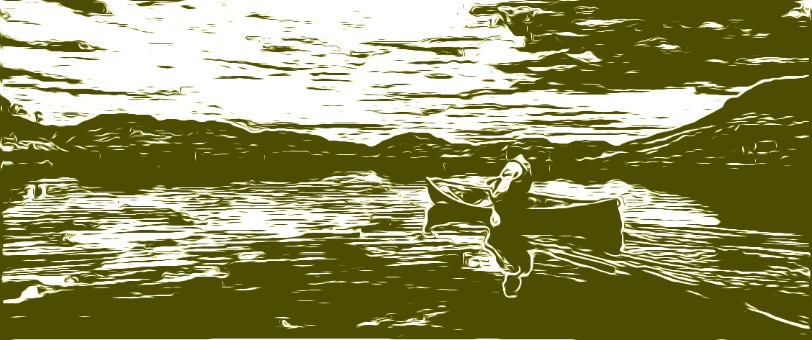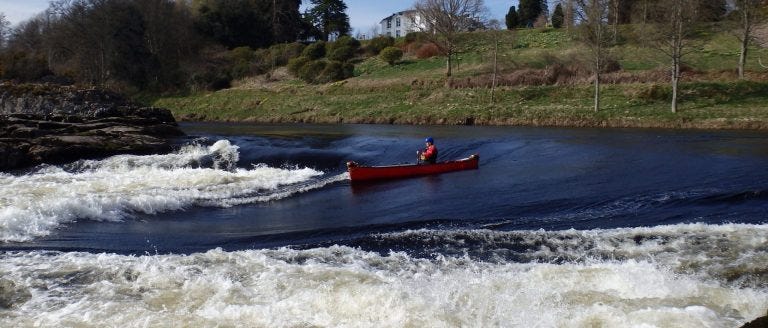Programming your wetware for adventure
Meet a passionate advocator for developing the mental muscles you use on adventures. And share the challenges of making money from an offering people might not really understand. (Adam Evans part IV)
Is it even possible to experience adventure without experiencing apprehension? From candid conversations over the years with people from novice SCUBA divers to gnarly seasoned cavers, I am guessing not. It can show up when packing your kit for a trip or it can show up when you round a corner and find a feature in the way ahead that suddenly has you on edge. If you are reading this then I am sure you have felt this sort of apprehension for yourself.
Key takeaways:
This article is about how performance coach and wilderness guide Adam Evans:
identified the apprehension that comes with adventure as something he liked helping people with
diligently grew his ability and qualifications for this style of coaching
then turned to the challenges of making a living from it alongside his activities in the outdoors.
Wetware: all the gear – and the whole idea
So, what are we talking about today? In Adam’s words it’s the “software between your ears” – aka “wetware” – and how adventurers can use it rather than be at the mercy of it.
“There’s a lovely model that splits physical skills acquisition and performance into four categories: technical, tactical, physical and psychological [see Adam’s video on this TTPP model below]. And while everyone gets this and can see how each area helps them, it amuses (and, let’s be fair, frustrates) me that they only spend money on the first three.”
This may be because while people nod and say they get the importance of the mind when it comes to performance and skills acquisition, it’s different from the other three areas. Athletes and adventurers instantly get and can apply what “technical, tactical and physical” are, but what exactly is “psychological” to such folk? It is this last that allows you to go from “good to excellent”, improving their physical performance, accuracy, timing, speed, power and stamina. (Adam is hot on the factual evidence for this if you want to know more - see the link to his mental-games website below).
“I try to explain that if you’ve ever been really, really scared you will probably recognize that many of your faculties go offline. You lose the ability to decide fast what to do. And if you’re really frightened then your fine motor skills also go offline. You lose the ability to apply those technical skills you’ve carefully acquired. That’s what we mean by the ‘psychological’ side of activities.”
“It befuddles me why people spend so much money on the kit and so little time on the brain that uses the kit.”
How Adam helps
Adam’s skills lie in using the NLP, hypnosis and coaching skills and qualifications he has (amongst others) to help people get into what practitioners recognise as both a flow and a performance state and be able to self-regulate. He helps them move from being at the mercy of events and their emotions; to believe that things don’t have to be that way.
“If I can get you to realise that, no, this is not ‘what everyone does’, it’s just what you do; if I can get you to learn to adapt your thinking and feeling strategies; if I can get you to alter where you place your attention, then you will alter your performance.”
For those really wanting to make progress this is done out of the field, either as a series of ad-hoc sessions or as a more comprehensive coaching programme. And, yes, in this post-lockdown world this is often delivered over Zoom as much as face-to-face.
Here is Adam explaining where he focusses in his own words:
Does this actually help people?
Can sessions just working on your wetware really make a difference when you are back adventuring outdoors? Well, in the words of one climbing client:
“I had another session in December and it was mega! Every climb I got on, I felt strong, confident and had the skill set to complete it. I had never felt that confident or psyched before. I just wanted to climb everything and every climb I got on, I knew I had the ability to complete it.”
Or this expedition canoe paddler:
“I now feel physically stronger as I move from eddy to eddy and I no longer need to rest so frequently or for as long… My energy levels have increased as my self-confidence has increased and this means that I approach the next section of water with eager anticipation rather than ‘running on empty’”
The challenges Adam now faces
Hopefully you now have a better idea of what Adam does, why you can refer to it as “programming your wetware for adventure” and what a powerful difference it can make to people. You’ve probably also spotted that mastering your wetware can make a difference in all walks of life.
So, it should all be plain sailing for Adam to marry this in with the outdoor training and expedition leading he does, shouldn’t it? It shouldn’t be too difficult to line the clients up and get the satisfaction of helping them and get as rewarded as with his other activities?
There are a few obstacles in the way though, as Adam describes:
“ It’s hard getting people to appreciate the power of it”
“I feel like I need to ‘pre-coach’ people to think about their thinking before they’ll even consider it or be open to it”
“Sometimes I have to make sure they know that it’s not something done to them, but something they have to put hard work into doing”
“There’s also the question of perceived value. There’s no kit to buy and show off. There are no new physical skills to demonstrate. There’s even the perception that helping people with this should just be the matey bit you do.”
If you’re an adventure coach or guide, do any of these sound familiar? Heck, whatever you do for a living, you may be empathising with Adam!
We’ve no doubt Adam will find his way through these challenges. He’s got a solid track record of uncovering what people want and making a decent living from helping them. Do you have any thoughts to offer him? What ideas are you prepared to share? (And if we can work out how to get the community thread and chat part of Substack working, are you prepared to share them here?!)
Reflections
From the work we’ve done over the years in different sectors, these are the reflections that occurred to us:
A powerful foundation is knowing how you really want to help people. But not ramming it down their throats. Do you think Adam scores well on this front? (We do)
Segmenting your market can make it easier for you to work out how to package what you want to sell. Characterise different groups of your clients and possible clients in terms of what they are looking for. (For example, Adam works with super adventurers/athletes at the top of their game who, I should imagine, experience apprehension very differently from those of us he also works with who just want to get better at what they do so they can enjoy it more.)
Seeking to understand these different groups better is a great way of working out ways of tailoring what you want to offer to what they want to buy. It can often beat sitting down and trying to work it out on your own.
Being clear to yourself whether your offering is purely transactional (lots of one-off clients) or relationship based (you see quite a few people time and time again) will help you tailor what you do and how you sell it.
Even if lots of your work is relationship based, your clients are likely to see it as transaction based when they first use you. Hence the importance of engaging people with what they want and understand, then growing that client-teacher relationship at their pace, not yours.
Ideas
And might these ideas helps Adam do more of the work he wants to do?:
Planting seeds with customers of his non-psychological outdoor training and expedition leading. It doesn’t have to be as obvious as always mentioning another qualification or badge you can get. In Adam’s case, maybe bringing their attention to the P part of the TTPP model while out in the field.
Crafting low-commitment options for those who are interested in their mind game, but aren’t sure. As Adam himself said, finding something akin to the “one-click” purchase we’re all used to these days.
What next?
Finally, we’d really like to hear any thoughts it has provoked. If you’re new to Substack, you can do this by commenting using the buttons below. We’re feeling our way through this particular writing adventure so even a little 👍 or 👎 would help!
Related links:
Adam Evans part I: Learning, learning, learning
Adam Evans part II: Better than a pizza
Adam Evans part III: "Yuk, I don't want to do something like that!"






Really interesting. I recognise use this in relation to both my MTB performance and long hill rides. Would love a coach to work on this with me